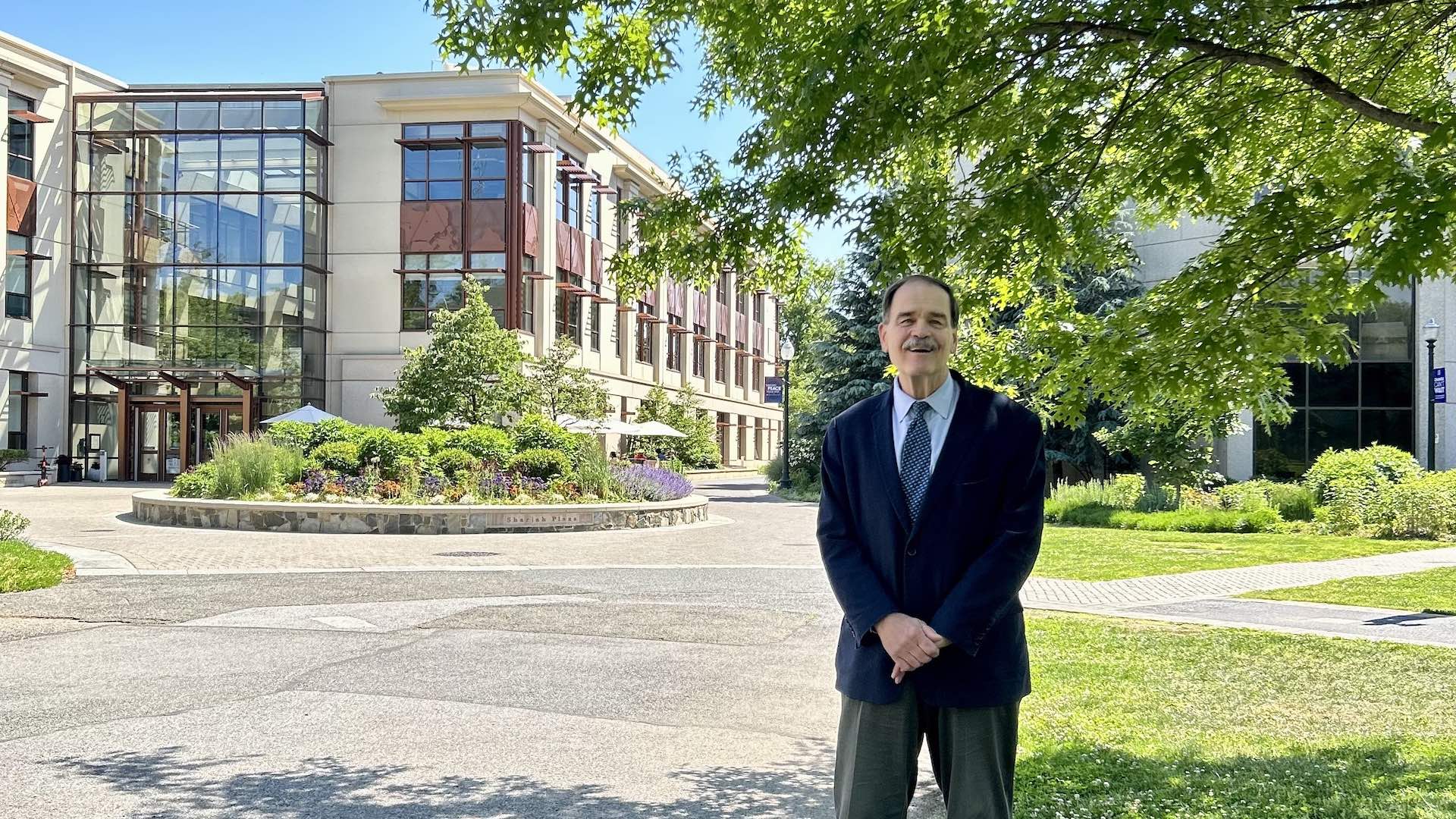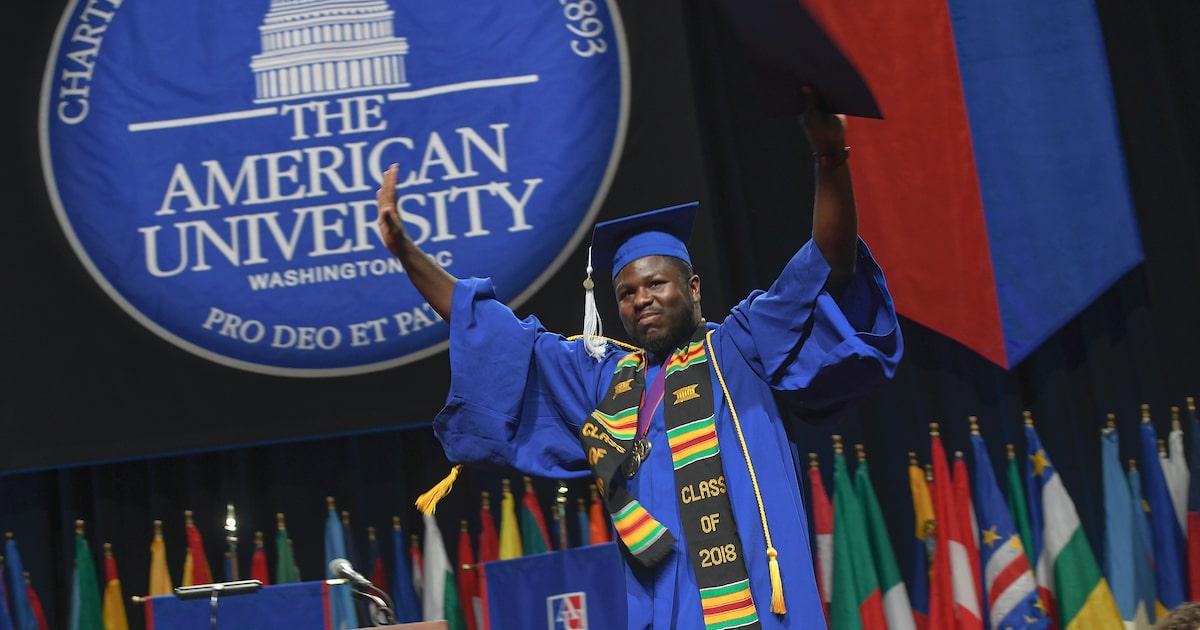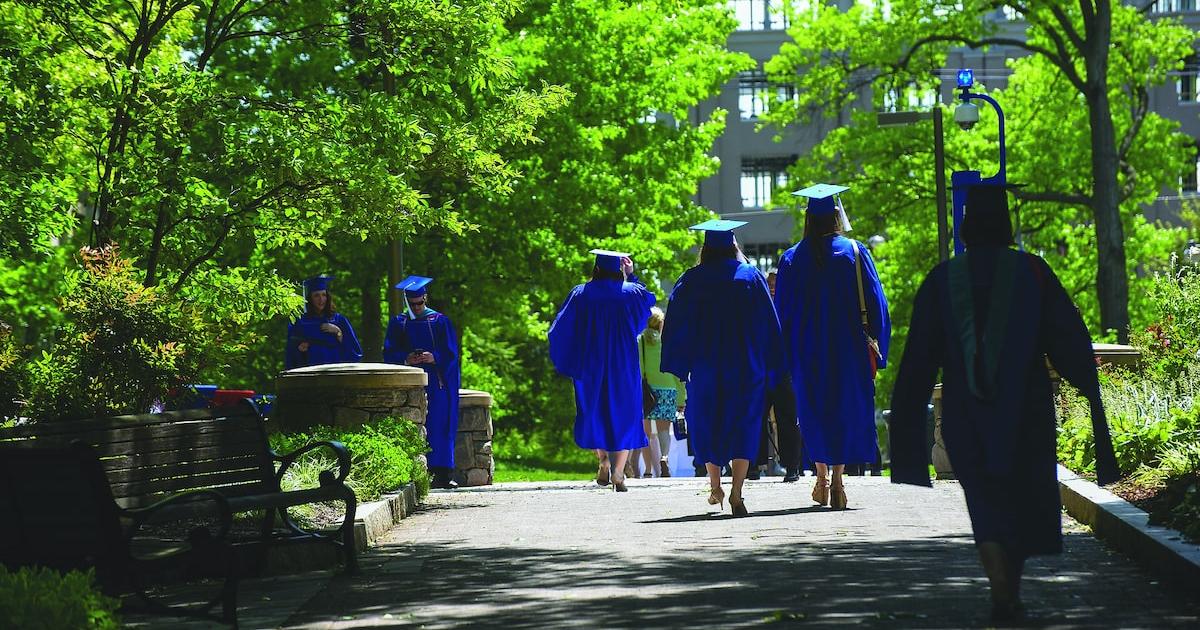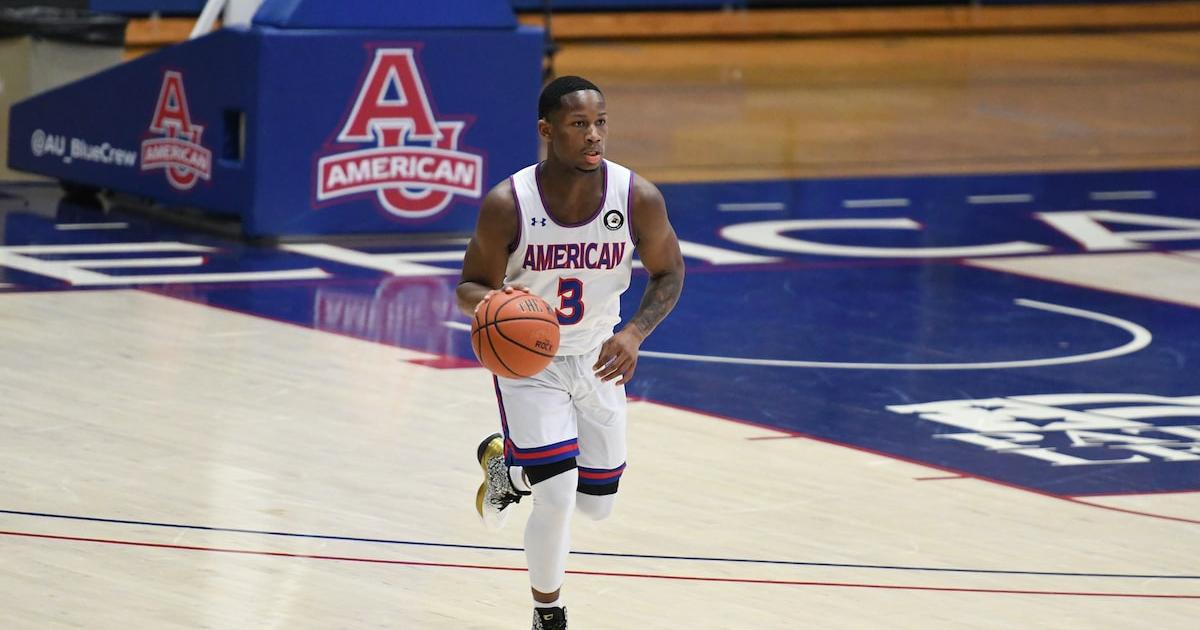
Sitting outside on campus on a bright afternoon in late May, it’s easy to see why Dr. Tom Snitch, SIS/MA ’77, SIS/PhD ’82, feels an enduring connection to American University.
“This is my home,” says Snitch. “I spent some great, wonderful years here.”
The class of 2023 has just graduated, and campus is settling into the summer term. A double Eagle himself, Snitch has seen the campus across eras and can tell countless stories from his student days at AU’s School of International Service (SIS). These memories—steeped in SIS’s tenets of global development and cultural exchange—have stayed with him throughout a distinguished career in the intersection of the governmental, academic, and scientific sectors. A member of the Dean’s Board of Advisors at SIS, Snitch is a leading expert in humanitarian and security solutions, most recently using satellite technology to address transnational crime.
On this afternoon, Snitch is back at 4400 Massachusetts Ave to discuss the newest chapter in his AU story and the recent scholarship he founded with his wife, aerospace executive Mary Snitch. It is his hope that the Tom and Mary Snitch Fund for First Generation Success will enable first-generation students at SIS to reach their fullest potential.
“First-generation [students] . . . come here [to AU], and they have the ability to do great things if given the opportunity. And so that’s why we do it,” he says.
The scholarship embodies an ethos of paying it forward—an idea with deep, personal roots for Snitch and one that he traces back to his own AU journey.
A Path Made Possible
Snitch first came to AU in 1975 as a student in the Washington Semester Program. A junior majoring in Chinese at Bowling Green State University in his home state of Ohio, he was excited by the chance to live, study, and intern in DC—an opportunity that would ultimately prove to alter his life’s trajectory.
And yet, it almost didn’t happen.
After being admitted to the program, Snitch discovered that while he could pay for the travel and housing costs, the difference in tuition for the semester was beyond what he could afford.
It was then that Howard L. Shine, dean at Bowling Green State University, did something that would leave a lasting impression on Snitch.
“I said, ‘Dean, I can’t go. I don’t have the money,’” Snitch recalls. “He said, ‘I’ll pay for it.’
“I choke up every time I think about it,” continues Snitch. “He changed my life in one minute. I would not be here today had Dean Shine not said, ‘I’ll put $1,500 on there.’ That has stuck with me all my life.”
Looking back now, Snitch credits this moment with setting him on his future path. It would be the first in a long line of unexpected opportunities and unlikely mentors.
As Snitch’s semester at AU came to an end—complete with an internship at the Brookings Institution—he decided to stay in DC and set his sights on graduate studies in international relations. Though while he thought that SIS, his top choice, would be out of reach, a chance conversation on the N2 bus with the school’s dean, Robert Gregg, resulted in admittance to the PhD program with full tuition and a multi-year teaching grant.
Snitch accepted the opportunity, unaware of all the fruits it would bear.
In his first year as a PhD student, he was asked to assist the Washington Semester Program; the following year, he became a NASA doctoral fellow. Two years later, another conversation with Dean Gregg found Snitch leading the Washington Semester Program’s foreign policy course. When his time at AU reached its close, Snitch secured a position at the US Department of State. Within three months, he was on an airplane to Geneva, Switzerland, already immersed in a global policy career that would continue for decades.
Snitch recalls this series of “open doors” as a parable of carpe diem and kismet, made even more impactful in a capital like DC.
“That’s what being in Washington does,” says Snitch. “It’s just that sort of rolling thing where one thing leads to another.
“The reason [people like me] got to where they are, it’s all the same reason: someone took a chance on them, and they were smart enough to accept it and then say, ‘I don’t care what it takes; I’m going to excel.’”
Guiding the Next Generation of Eagles
The life lessons from Snitch’s time at AU continue to inform his perspective of what it means to be an Eagle. He cites his own life as proof of how stepping up and chipping in creates change.
Mentorship and philanthropy have become particularly meaningful ways for Snitch to support AU students who are navigating professional next steps, just like he once did. An active mentor in the SIS Mentoring Program, he meets students wherever they’re at in the post-graduation process, from reviewing resumes to making introductions with industry contacts. He believes that having access to networks is more essential than ever to help SIS students stand out in a competitive market.
“I think [connections] are essential,” stresses Snitch. For students hoping to land an internship or position, knowing someone who can make a call or send an email on their behalf is invaluable to “getting their signals through the noise.”
Snitch tries to drive this point home with the students he mentors. He encourages AU changemakers to be bold thinkers, but even bolder doers.
One example—his advice for current SIS students is to seek out multi-disciplinary learning. Taking a chemistry class or accounting seminar might seem unexpected for an international studies major, explains Snitch, but tomorrow’s global leaders will all likely need to read an environmental paper or balance a budget at some point in their careers.
“It's fine to understand the problem, but you have to develop the analytical capabilities and tool sets that let you go to policymakers and [propose solutions],” Snitch says.
Through his involvement with SIS, Snitch is eager to help equip students with the skill vocabularies to steer tomorrow’s conversations. His future-focused outlook is part of why he cares so deeply about supporting students, and he views the Tom and Mary Snitch Fund for First Generation Success as an investment in the next generation of SIS alums.
SIS dean Shannon Hader calls Snitch an exemplar of all that the school strives to foster at AU and globally.
"Dr. Tom Snitch truly embodies the SIS mission of leadership in practice—through service, and also through philanthropy,” says Hader.
She continues, “The new Tom and Mary Snitch Fund for First Generation Success is a powerful intervention and will help build a legacy. It will enable more SIS students to pursue their individual paths to global service—hopefully, paths that make their wildest hopes and dreams so very real!”
For Snitch, being part of a student’s journey from SIS and out into the world is always a privilege. He’s never lost appreciation for his own life’s course nor the mark of those he’s met along the way.
“The thing that people have to realize is a [scholarship] gift like that,” says Snitch, “it doesn’t just help a kid go through school—it changes their entire life.”




